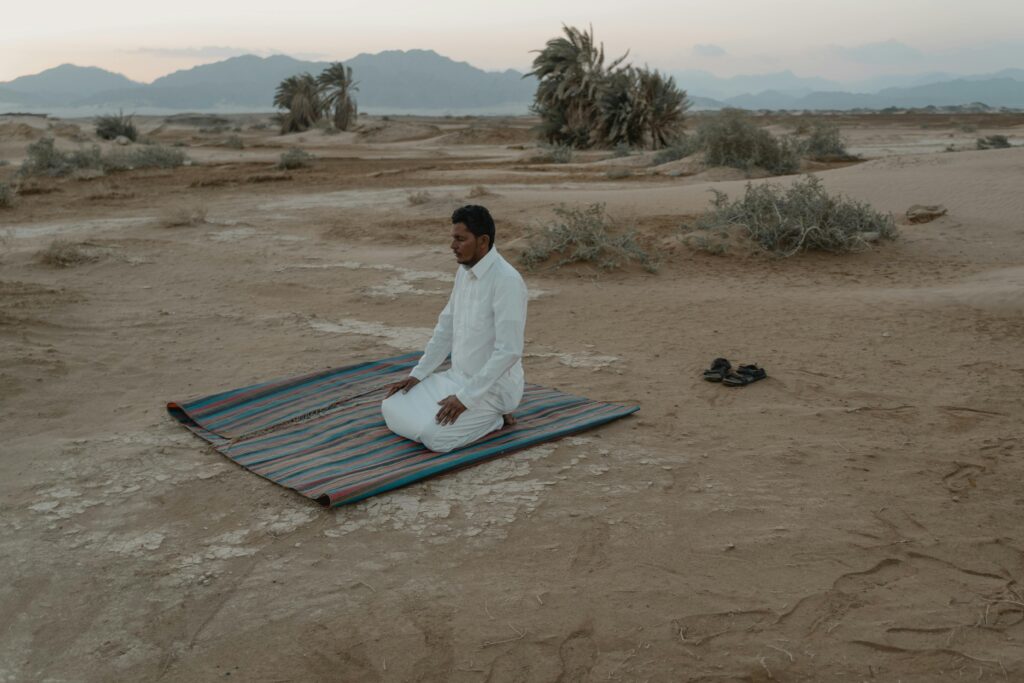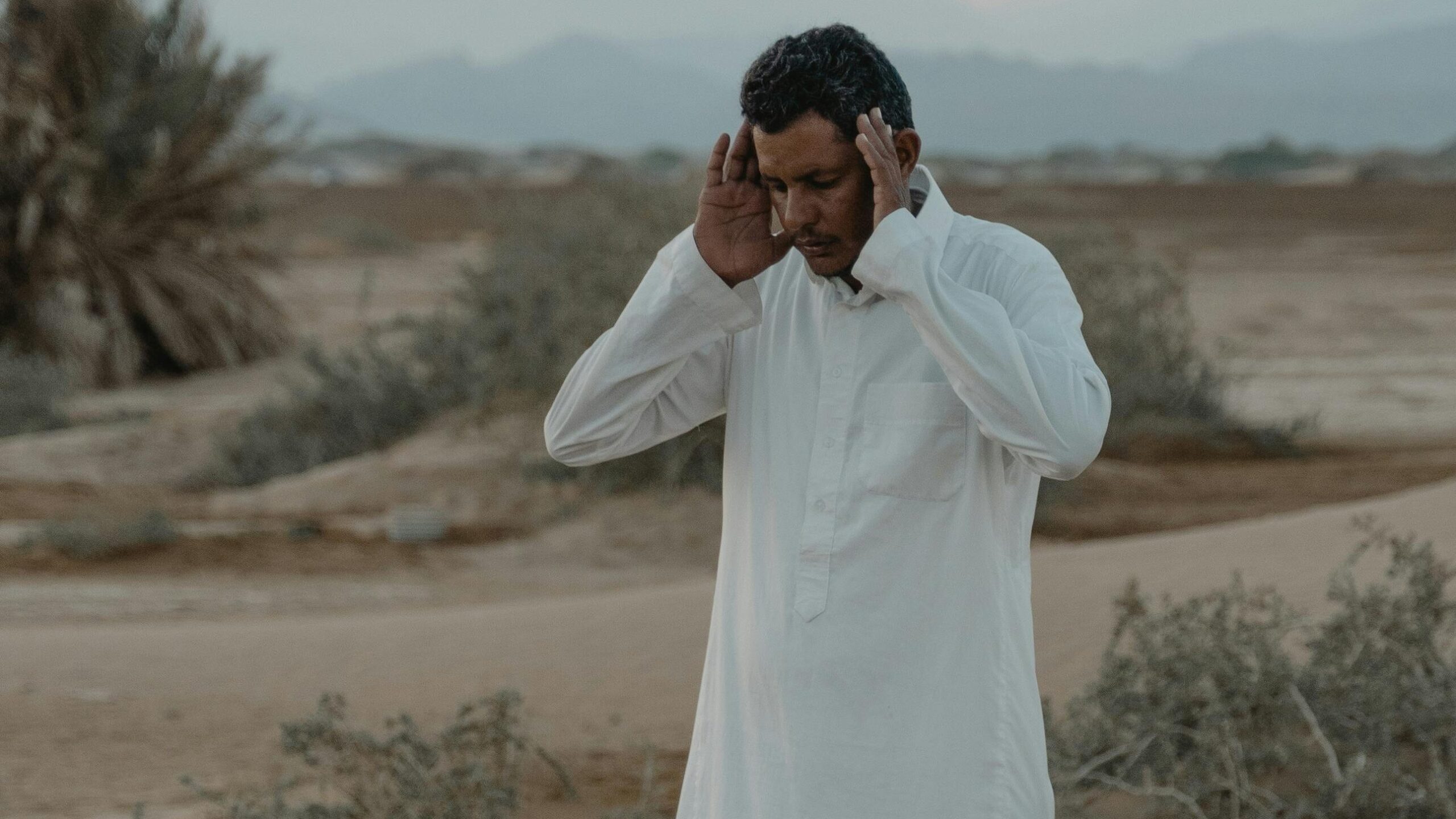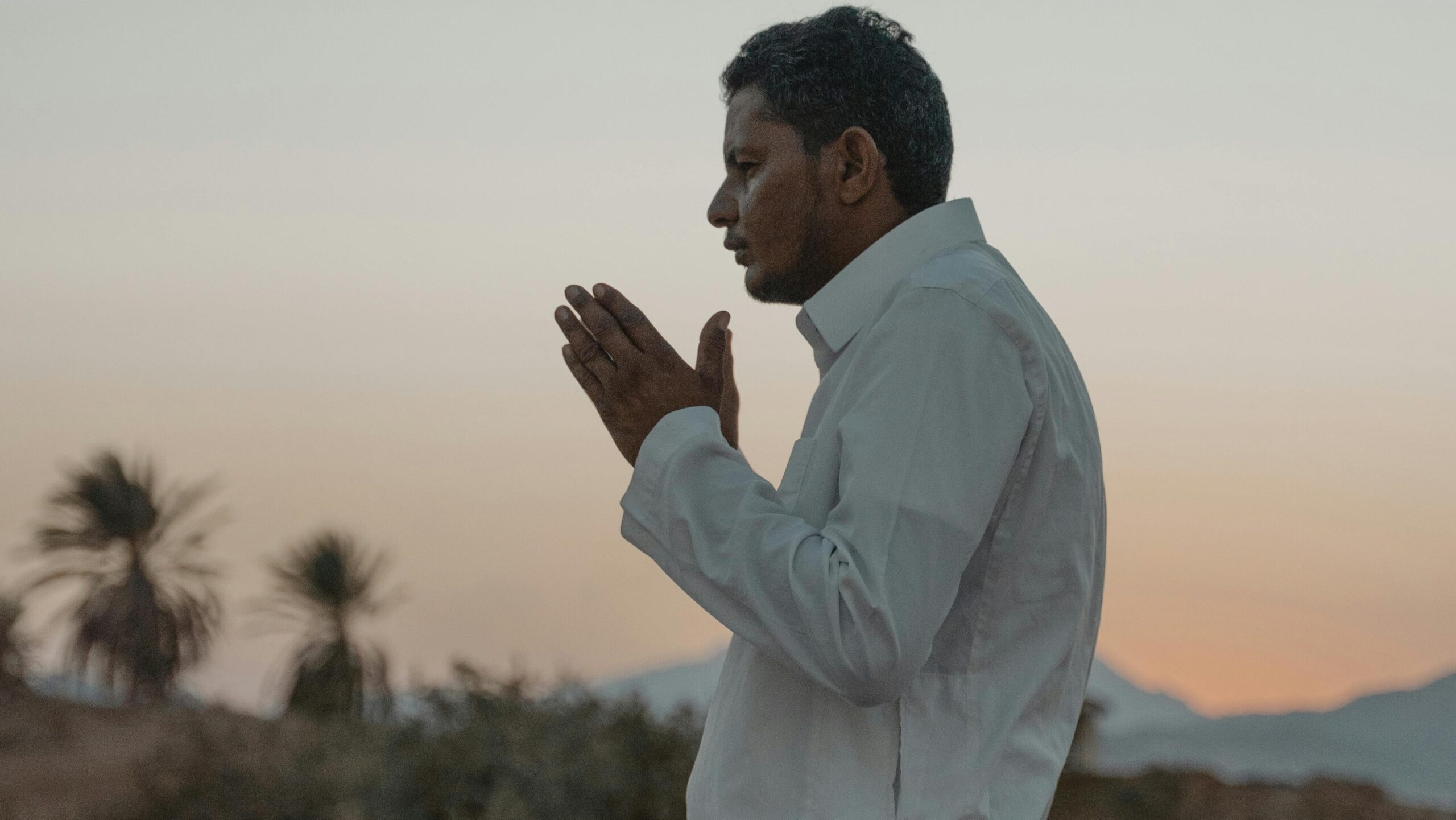Table of Contents
Introduction
In the serene dawn of faith, as the minarets silhouette against the breaking day, the Muslim Ummah awakens not just to the obligatory calls of the Fajr prayer but also to the softly whispered opportunities of Sunnah prayers. These voluntary prayers, deeply rooted in the Prophetic tradition, offer a unique spiritual nourishment, an intimate moment between a believer and their Creator. Sunnah prayers, though not compulsory, stand as a beautiful testament to the depth of Islamic worship, going beyond what is mandated to what is cherished and loved by the Prophet Muhammad (peace be upon him).
Within this vast landscape of devotion, two types of Sunnah prayers emerge: Sunnah Mu’akkadah (the emphasized Sunnah) and Sunnah Ghair Mu’akkadah (the non-emphasized Sunnah), each carrying its own weight and significance in the life of a Muslim. This blog ventures into the heart of these practices, unveiling their essence, exploring their differences, and shedding light on their profound impact on a believer’s journey towards divine closeness.

Understanding Sunnah Prayers
At the heart of Islamic spirituality lie the Sunnah prayers, voluntary acts of worship that the Prophet Muhammad (peace be upon him) performed regularly alongside the five daily obligatory prayers. These prayers are not mandated by Islamic law but are strongly recommended, serving as a bridge to greater piety and a means to emulate the Prophet’s exemplary life. The term “Sunnah” itself resonates with following the path laid out by the Prophet, a path of mindfulness, devotion, and an unyielding connection to Allah.
Sunnah prayers encompass a variety of practices, from two units (rak’ahs) before the Fajr prayer to the additional units before or after Dhuhr, Maghrib, and Isha prayers. These moments of solitude and reflection are not just spiritual adornments but are powerful avenues for accruing divine blessings, seeking forgiveness, and fortifying one’s faith against the trials of life. Through these prayers, Muslims find a profound sense of peace, a solace that transcends the immediate concerns of the mundane world, anchoring the heart in the tranquil certainty of divine presence.
The role and benefits of Sunnah prayers extend beyond the individual, influencing the social and communal aspects of Muslim life. By adhering to the Sunnah, a Muslim sets a living example of piety and devotion, inspiring others to follow suit. These prayers cultivate a community deeply connected to its faith, valuing the subtle acts of worship as much as the overt. In essence, Sunnah prayers are a mirror reflecting the profound love and reverence the Prophet (peace be upon him) held for his Creator, a love he tirelessly sought to instill in his Ummah.
Sunnah Mu’akkadah: The Emphasized Sunnah
Sunnah Mu’akkadah prayers, or the emphasized Sunnah, hold a special place in Islamic tradition. These are the prayers that the Prophet Muhammad (peace be upon him) performed regularly and emphasized to his followers, illustrating their importance through both word and deed. Among these, the two Rak’ahs before the obligatory Fajr prayer and the two, four, or more Rak’ahs before and after Dhuhr, as well as the two Rak’ahs after the Maghrib and Isha prayers, are notable examples. The Prophet’s consistent practice of these prayers, even during times of travel or hardship, underscores their significance and the high reward associated with them.
The historical background of Sunnah Mu’akkadah prayers is deeply intertwined with the Prophetic tradition. These prayers served not only as a means of additional worship but also as a mechanism for the Prophet to forge a deeper connection with Allah, setting an example for his Ummah to follow. The emphasis placed on these prayers by the Prophet (peace be upon him) is a testament to their potential impact on a believer’s life, offering increased guidance, spiritual growth, and divine support.
The importance of Sunnah Mu’akkadah prayers lies not just in their performance but in their ability to imbue a Muslim’s life with the Prophetic spirit. They act as a reminder of the meticulousness with which the Prophet approached his relationship with Allah, encouraging Muslims to embody this same level of devotion. Engaging in these prayers, believers find themselves walking in the footsteps of the Prophet, experiencing a closeness to Allah that transcends the physical bounds of prayer.

Sunnah Ghair Mu’akkadah: The Non-Emphasized Sunnah
In contrast, Sunnah Ghair Mu’akkadah, or the non-emphasized Sunnah prayers, are those voluntary prayers that the Prophet Muhammad (peace be upon him) performed occasionally, without the same regularity as the Sunnah Mu’akkadah. These include prayers like the four Rak’ahs before Asr and the optional Rak’ahs that can be performed during the night (Tahajjud prayers). While not emphasized to the same extent, these prayers still hold considerable value, offering additional opportunities for worship and reflection.
The historical significance of Sunnah Ghair Mu’akkadah prayers lies in their flexibility and accessibility. They serve as a gentle invitation to engage in extra acts of worship, accommodating the varying capacities and circumstances of believers. This category of Sunnah demonstrates the Prophet’s understanding and compassion for his Ummah, providing a path to spiritual enrichment that is adaptable and inclusive.
Practicing Sunnah Ghair Mu’akkadah prayers allows Muslims to enhance their spiritual experience and deepen their connection with Allah without the fear of neglecting an emphasized practice. These prayers offer a personal space for growth and introspection, further enriching the Islamic spiritual landscape.
The Differences Between Sunnah Mu’akkadah and Ghair Mu’akkadah
The key distinction between Sunnah Mu’akkadah and Sunnah Ghair Mu’akkadah prayers lies in their level of emphasis and regularity as practiced by the Prophet Muhammad (peace be upon him). Sunnah Mu’akkadah prayers are those he performed consistently and encouraged his followers to do the same, highlighting their importance within the Islamic faith. On the other hand, Sunnah Ghair Mu’akkadah prayers were performed more sporadically, offering flexibility and accommodating the diverse capacities of the Ummah.
This distinction has practical implications for daily Islamic practice. While missing a Sunnah Mu’akkadah prayer is viewed with more concern due to its emphasized status, neglecting a Sunnah Ghair Mu’akkadah prayer does not carry the same weight, acknowledging the varied circumstances of individual believers. However, both types of Sunnah prayers are avenues through which a Muslim can draw closer to Allah, embody the Prophetic tradition, and enrich their spiritual life.
Insights from Islamic scholars further illuminate the wisdom behind this classification, underscoring the balance it brings to religious practice. It allows for a devout adherence to the Sunnah while recognizing the limitations and challenges of daily life, offering a compassionate approach to spiritual growth.
How to Pray Sunnah Prayers
Incorporating Sunnah prayers into daily worship requires understanding both the structure and the spirit in which these prayers are to be performed. While the physical act mirrors the obligatory prayers, the intention (niyyah) sets them apart, focusing on following the Prophet’s example and seeking closeness to Allah.
Setting the Intention
Begin by internally setting your intention to perform the Sunnah prayer you wish to undertake. For instance, before starting the Sunnah prayer before Fajr, mentally affirm, “I intend to perform the two Rak’ahs of Sunnah prayer before Fajr for the sake of Allah.”
The Opening Takbir
Like all Islamic prayers, Sunnah prayers start with the Takbir. Raise your hands and say “Allahu Akbar” (Allah is the Greatest), signifying the beginning of your prayer and your entry into a state of communication with Allah.
Recitation of Al-Fatiha and Another Surah
After the opening Takbir, recite Surah Al-Fatiha, followed by another Surah or a few verses from the Quran. The choice of Surah after Al-Fatiha in Sunnah prayers is flexible, allowing you to recite what you have memorized or are comfortable with.
Ruku’ and Sujood
Proceed with the prayer by performing Ruku’ (bowing) and Sujood (prostration), just as in the obligatory prayers. These physical acts of worship symbolize humility and submission to Allah’s will.
Completion of Rak’ahs
Complete the designated number of Rak’ahs for the specific Sunnah prayer you are performing. For example, if you are praying the two Rak’ahs of Sunnah before Fajr, you would complete one cycle of standing, bowing, and prostrating twice.
Closing the Prayer
Conclude your prayer with the Taslim, turning your head to the right and then to the left, saying, “As-salamu alaykum wa rahmatullah” (Peace and mercy of Allah be upon you), signifying the end of your prayer.

Incorporating Sunnah Prayers into Daily Life
Embracing Sunnah prayers in one’s daily routine offers a pathway to spiritual enrichment and a deeper connection with the divine. Here are practical tips for seamlessly integrating these prayers into everyday life:
- Start Small: Begin with the Sunnah prayers that are easiest for you to incorporate, such as the two Rak’ahs before Fajr or after Maghrib. Gradually, as your routine allows, increase the number of Sunnah prayers you perform.
- Set Reminders: Utilize technology by setting reminders on your phone or apps designed for Muslim worshippers. These can help keep you consistent and mindful of prayer times.
- Seek Knowledge: Understanding the significance of each Sunnah prayer can motivate you to make them a part of your life. Learning about the rewards and benefits tied to these acts of worship can be incredibly inspiring.
- Create a Prayer Space: Designate a specific area in your home for prayer, where you can focus and reflect without distractions. A peaceful environment can enhance your prayer experience.
- Community Support: Engage with a community or a prayer group that values Sunnah practices. Being around like-minded individuals can provide encouragement and motivation.
- Reflect on the Benefits: Keep in mind the spiritual, emotional, and physical benefits of Sunnah prayers, including increased peace, mindfulness, and a stronger connection with Allah.
Incorporating Sunnah prayers into your daily life doesn’t require drastic changes but rather, small, intentional steps that lead to a more fulfilling spiritual journey. Let these prayers be your solace, your moments of peace in the hustle of life, and a means to draw closer to the Prophet’s (peace be upon him) example.
FAQ Section
What are Sunnah prayers?
Sunnah prayers are voluntary prayers that the Prophet Muhammad (peace be upon him) performed alongside the obligatory prayers. They serve as additional opportunities for Muslims to worship, seek closeness to Allah, and emulate the Prophet’s practices.
How many Rak’ahs are there in Sunnah Mu’akkadah prayers?
The number of Rak’ahs varies among the Sunnah Mu’akkadah prayers. Notably, there are two Rak’ahs before the Fajr prayer, four before and two after the Dhuhr prayer, two after the Maghrib prayer, and two after the Isha prayer.
Can I make up missed Sunnah Mu’akkadah prayers?
While Sunnah prayers are voluntary and there is more flexibility in making them up compared to obligatory prayers, many scholars encourage making up missed Sunnah Mu’akkadah prayers when possible, especially if their omission was due to forgetfulness or circumstances beyond one’s control.
Are there any specific times when Sunnah prayers should not be performed?
Yes, there are times when it is discouraged to perform voluntary prayers, including Sunnah prayers. These include the times immediately after the Fajr prayer until the sun rises, at the zenith of the sun just before Dhuhr, and after the Asr prayer until the sun sets.
How can Sunnah prayers benefit my daily life?
Sunnah prayers can significantly enhance your spiritual well-being, bringing peace, contentment, and a heightened sense of connection with Allah into your daily life. They also serve as a means to emulate the Prophet Muhammad (peace be upon him), enriching your practice of Islam through following his example.

